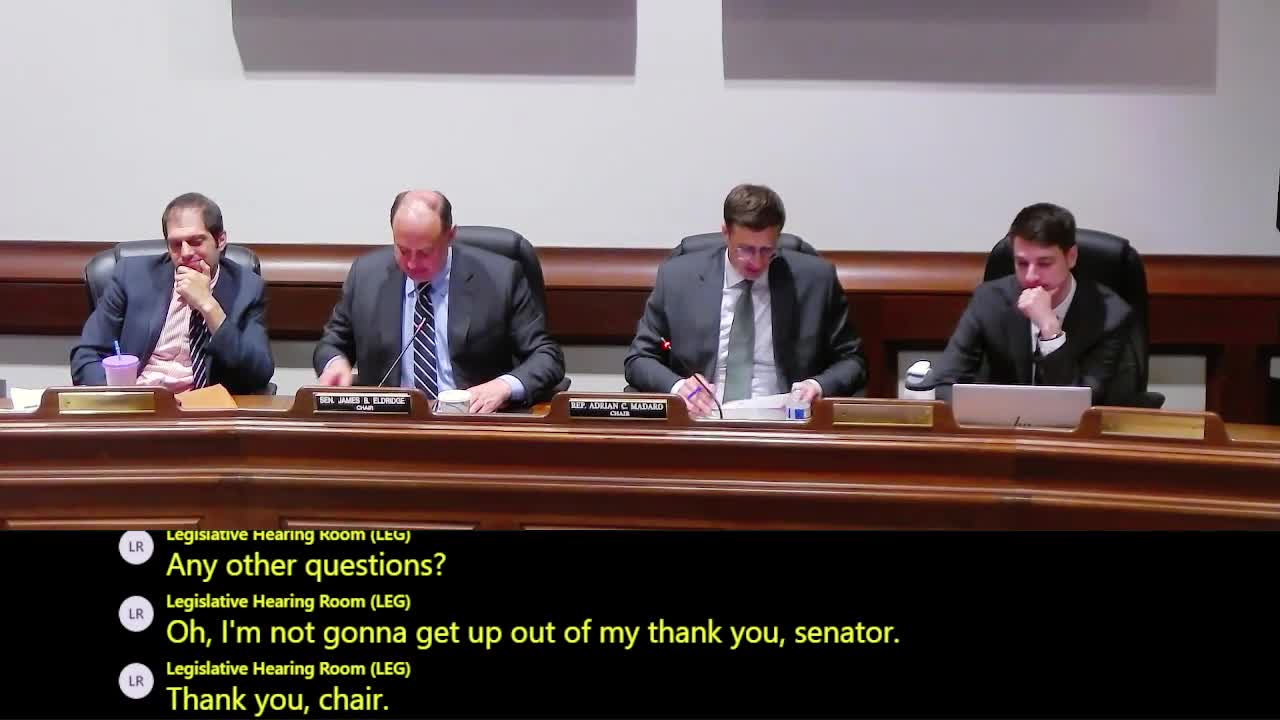Small towns press for higher PILOT payments on state‑owned land
Get AI-powered insights, summaries, and transcripts
Subscribe
Summary
Representatives of small, rural towns and a regional municipal partnership told the Joint Committee on Revenue that current PILOT formulas for state‑owned land undercompensate communities and asked for supplemental payments and hold‑harmless provisions in S.1939 and H.3032.
Municipal officials and regional partners asked the Joint Committee on Revenue to reform payments in lieu of taxes (PILOT) on state‑owned land, arguing that current formulas fail to account for ecological benefits and impose disproportionate burdens on small, rural towns.
Sam Hout, speaking for the town of Peru and the Woodlands Partnership of Northwest Massachusetts (a consortium of 21 communities), said Peru has about 6,100 acres of state‑owned land—roughly 37% of the town’s land area—and that current per‑acre PILOT valuations leave the town with minimal local revenue. Hout said Peru receives about $14 per acre under existing formulas compared with a state median of $127 per acre; the town seeks supplemental funding in the range of $50 per acre along with hold‑harmless provisions included in the House and Senate proposals.
Hout described the administrative and public‑safety challenges that follow when a large share of a town’s acreage is restricted from development, including constraining local tax base growth and increasing pressure on municipal services. He said rural towns lack administrative resources to pursue alternative revenue mechanisms and asked the committee to report S.1939 / H.3032 and related bills favorably.
Senator Jo Comerford earlier referenced S.1939 and H.3032 in the hearing while discussing related resilience and funding topics; several witnesses noted state pilot programs in development and asked for formulas that better value ecosystem services provided by public land.
Committee members thanked the town representatives and invited written testimony; no committee vote was recorded during the session.
Reform proponents framed the bills as a step to level payments between rural and urban municipalities and to recognize public‑land ecosystem services when calculating compensation to host communities.
